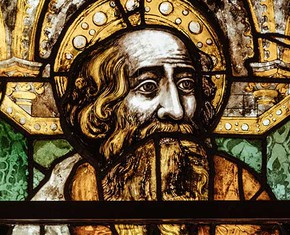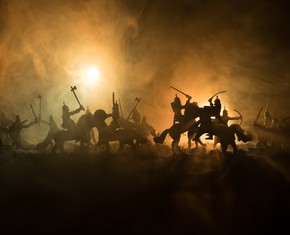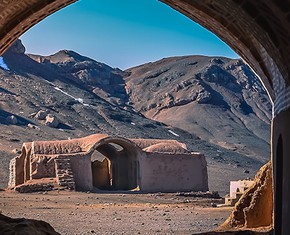The views expressed in our content reflect individual perspectives and do not represent the authoritative views of the Baha'i Faith.
The Festival of Naw-Ruz—one of five Baha’i festivals when Baha’is all over the world suspend work and celebrate—happens today!
On March 21, 2010, the United Nations marked the first “International Day for Nowruz” (Persian, “New Day”), an ancient spring festival of Persian origin, and New Year’s Day for those who practice the Zoroastrian Faith. Celebrated for over 3,000 years, and enjoyed today by more than 300 million people worldwide, Naw-Ruz inaugurates the new year on the first day of spring in the Northern Hemisphere.
Mary Boyce noted in the Encyclopedia Iranica that it “seems a reasonable surmise that Nowruz, the holiest of them all [Zoroastrian holy days], with deep doctrinal significance, was founded by Zoroaster himself.” Naw-Ruz may be sacred or secular, depending on the setting. For Baha’is, Naw-Ruz is sacred, imbued with the symbolism of springtime and spiritual renewal.

Baha’is of Umzumkhulu, South Africa celebrate Nawruz
Baha’i communities typically observe Naw-Ruz with celebratory meetings that combine prayerful devotions with joyous fellowship. Shoghi Effendi, the Guardian of the Baha’i Faith, said, “Naw-Ruz is our New Year, a Feast of hospitality and rejoicing.” – Directives from the Guardian, p. 30. To augment the festive joy, signal events are often announced or scheduled to take place on Naw-Ruz, an ideal time for momentous announcements as well.
How did this all come about? The Bab, the precursor and herald of Baha’u’llah, created a new calendar—called the Badi calendar—which consists of 19 months of 19 days each, with four intercalary days (five in leap years) to round out the solar year. The only religious festival that the Bab instituted was Naw-Ruz. The Bab wrote:
God hath called that month the month of Baha (Splendour, Glory), meaning that therein lieth the splendour and glory of all months, and He hath singled it out for Him Whom God shall make manifest. – The Bab, The Persian Bayan 5:3, provisional translation by Nader Saiedi, Gate of the Heart, p. 328.
Because this day was singled out by the Bab for Baha’u’llah, Naw-Ruz has become a highly symbolic holy day for Baha’is. Its original observance pointed forward to that messianic figure for whose imminent advent it was the Bab’s professed mission to prepare the world. The Bab’s teachings were primarily intended to prepare his followers for the coming of “Him Whom God shall make manifest.” Even so, Baha’u’llah preserved and adapted several of the Bab’s major laws to be observed by the Baha’is. In that way, Baha’u’llah formally ordained Naw-Ruz as a festival for those who have observed the period of fasting that precedes Naw-Ruz:
O Pen of the Most High! Say: O people of the world! We have enjoined upon you fasting during a brief period, and at its close have designated for you Naw-Ruz as a feast. Thus hath the Day-Star of Utterance shone forth above the horizon of the Book as decreed by Him Who is the Lord of the beginning and the end. – Baha’u’llah, The Most Holy Book, p. 25.
This Baha’i law refers to the nineteen-day Fast, a period of spiritual discipline and purification, during which Baha’is abstain from food and drink from sunrise to sunset. Since the Fast ends at sunset on the day Naw-Ruz begins, celebrations are often combined with a dinner.
Unlike the other Baha’i holy days, which commemorate historic events in Baha’i history, Naw-Ruz has religious significance primarily due to its symbolism of renewal. As an Indo-European language, Persian is distantly related to English, which explains why the word “naw” (pronounced “no”) in Persian is similar to the English word “new.” Naw-Ruz not only heralds the advent of spring, but is also symbolic of a “spiritual springtime.” On a personal level, the Festival of Naw-Ru´z is a time for renewal. On the occasion of Naw-Ruz in 1906, Abdu’l-Baha wrote to the American Baha’is saying, in part:
It is New Year; . . . now is the beginning of a cycle of Reality, a New Cycle, a New Age, a New Century, a New Time and a New Year. . . . I wish this blessing to appear and become manifest in the faces and characteristics of the believers, so that they, too, may become a new people, and . . . may make the world a new world, to the end that . . . the sword be turned into the olive branch; the flash of hatred become the flame of the love of God . . . all races as one race; and all national anthems harmonized into one melody. – Abdu’l-Baha´, Tablets of Abdul-Baha Abbas, 38–40.
This ancient Zoroastrian holy day and Persian springtime festival has now been transformed into a Baha’i holy day, which has, as its animating purpose, the creation of a new world in which an era of global peace and prosperity may be brought about through the universal Baha’i principles of unity through diversity. Baha’u’llah famously expressed those founding principles in 1890, during a historic visit from Cambridge orientalist Edward G. Browne, in these oft-quoted words:
That all nations should become one in faith and all men as brothers; that the bonds of affection and unity between the sons of men should be strengthened; that diversity of religion should cease, and differences of race be annulled—what harm is there in this? . . . Yet so it shall be; these fruitless strifes, these ruinous wars shall pass away, and the “Most Great Peace” shall come. – A Traveller’s Narrative, p. xl.
Baha’is see this New Day as transforming the vernal equinox into a universal celebration of the oneness of humanity.
















Comments
Sign in or create an account
Continue with Googleor